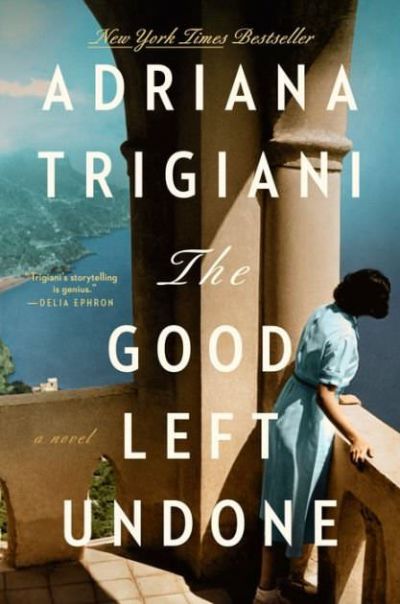La scrittrice descrive la sua esperienza di volontariato all'Italian-American Museum di Los Angeles. L'evento è stato una conversazione con la famosa autrice italo-americana Adriana Trigiani. Trigiani ha scritto più di 20 libri (narrativi e saggistica) sempre inerenti alla cultura italiana. Il suo libro più recente è “The Good Left Undone”. I suoi lettori adorano il modo in cui Trigiani scrive, sempre con l'importanza della famiglia e l'amore per le sfide dei nostri nonni italiani che emigrarono dall’Italia, per cui molti americani di origine italiana abitano ancora qui negli Stati Uniti. Trigiani riconosce sempre che il duro lavoro e la dedizione all'importanza del lavoro degli immigrati è un filo che unisce tutti gli italoamericani. Il messaggio definitivo di Trigiani è stato quello di scrivere e documentare tutte le storie delle nostre famiglie perché indica non solo la storia di chi si è, ma anche la storia degli immigrati italiani universali.
Recently, I had the good fortune to be a volunteer for the Italian American Museum Los Angeles’ (IAMLA) “A Conversation with Adriana Trigiani”. Trigiani is an Italian American best-selling author and playwright as well as writer, director and producer for film and television. She is the author of more than 20 fiction and non-fiction books. “The Good Left Undone” is her latest, and in my opinion, the best of her many highly acclaimed novels.
Her detailed and mostly authentic stories are taken in part from her life growing up in an Italian American family in rural Appalachian Virginia and in part from things that she observes in life. For instance, if she is writing about Carnevale in Viareggio, Italy and there are particular foods being offered on the boardwalk, she will research the recipe and talk to people of that region about how it is made, so that what is represented is authentic to that time and place. Her in-depth research on little-known events become integral parts of her stories adding detail and credibility to them.
Her stories encompass themes of love and work, how we survive by the labor of our own hands and the love of family, and those we choose to love and those who love us. Trigiani’s concern for working people, especially Italian and Italian American working people, was evident when she spoke about the Vatican: “Prior to 1919, the Vatican was the largest employer of Italians,” she stated, “They are artisans; the frescoes, sculptures, and the churches and the marble were all commissioned and paid for. If you are Italian, you come from a very long fruitful line of hard-working skilled artisan, and…if there is one thing I hope my books do always and forever, it’s that they honor working people.”
Everything she writes about comes from something she sees or hears, her senses always primed, while traveling and meeting people. She finds little “gems”, anything that might pique her interest and challenge her creativity. Years ago, Trigiani went on a Vatican tour and the tour guide turned out to be Curator of the Vatican Jewels. What she experienced during that tour sparked many ideas in her. Since, in her estimation, this part of Vatican history had not been properly recorded, she decided to weave what she learned into “The Good Left Undone”.
The immigrant also holds a special place for Trigiani. “Sometimes we forget the immigrant. And once we get out, we don’t worry too much about who was behind us,” she says. When immigrants assimilated into a new country, many lost their history. She agrees that it certainly is not true of all of Italian Americans, those of us who are writing and documenting our own stories, finding our histories and the people and events of our past that make us unique and interesting. We all have stories. “When we were children, we never talked about what went on inside the walls of our houses. We weren’t allowed.” Things such as the illegitimate child, the lover, or the loss of a child. Trigiani has built her career on getting these stories told. The secrets, the shame, the guilt, the things that our mother told us not to tell anyone. “It’s important to get those stories out,” she says with passion.
Trigiani has an engaging and nurturing nature and draws attention when she walks into a room, but in a very unassuming way. After her presentation at IAMLA, she spoke with every person who attended and wrote personal messages along with her signature in their copy of her book. “I want you to take my job!” was her mantra as she encouraged them to write their stories. When you read her books, you will find her in them whether as the granddaughter, daughter, sister or mother: her failures, her insecurities, her transformations, her strengths and her loves. You will laugh and you will cry! And you may be inspired to write your own stories as I have about my mother in “La Cucina di Clelia” - my mom’s extraordinary life and original recipes.
https://www.lagazzettaitaliana.com/history-culture/10215-adriana-trigiani-at-the-iamla#sigProId36c9bfe97d




